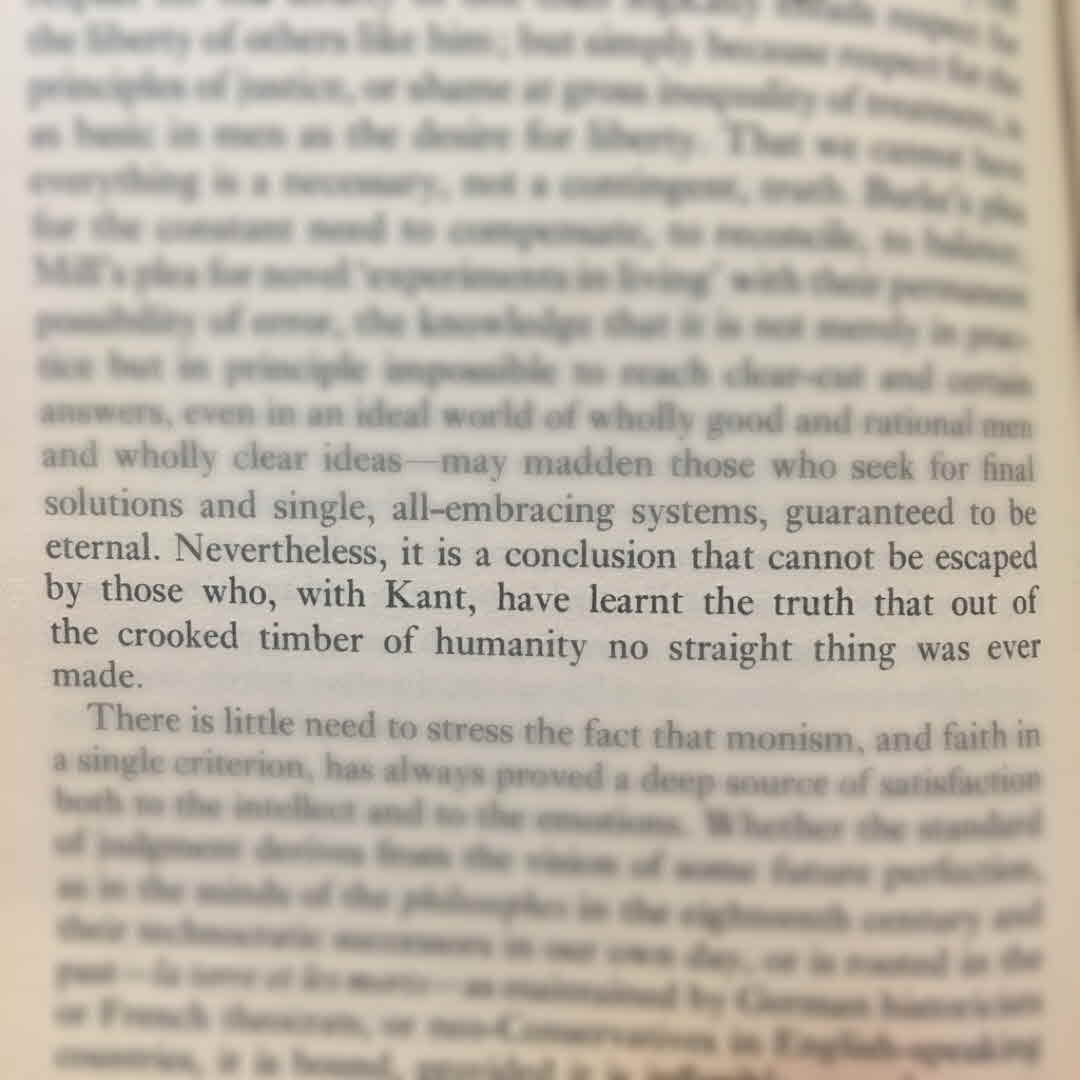
Nevertheless, it is a conclusion that cannot be escaped by those who, with Kant, have learnt the truth that out of the crooked timber of humanity no straight thing was ever made.

Nevertheless, it is a conclusion that cannot be escaped by those who, with Kant, have learnt the truth that out of the crooked timber of humanity no straight thing was ever made.
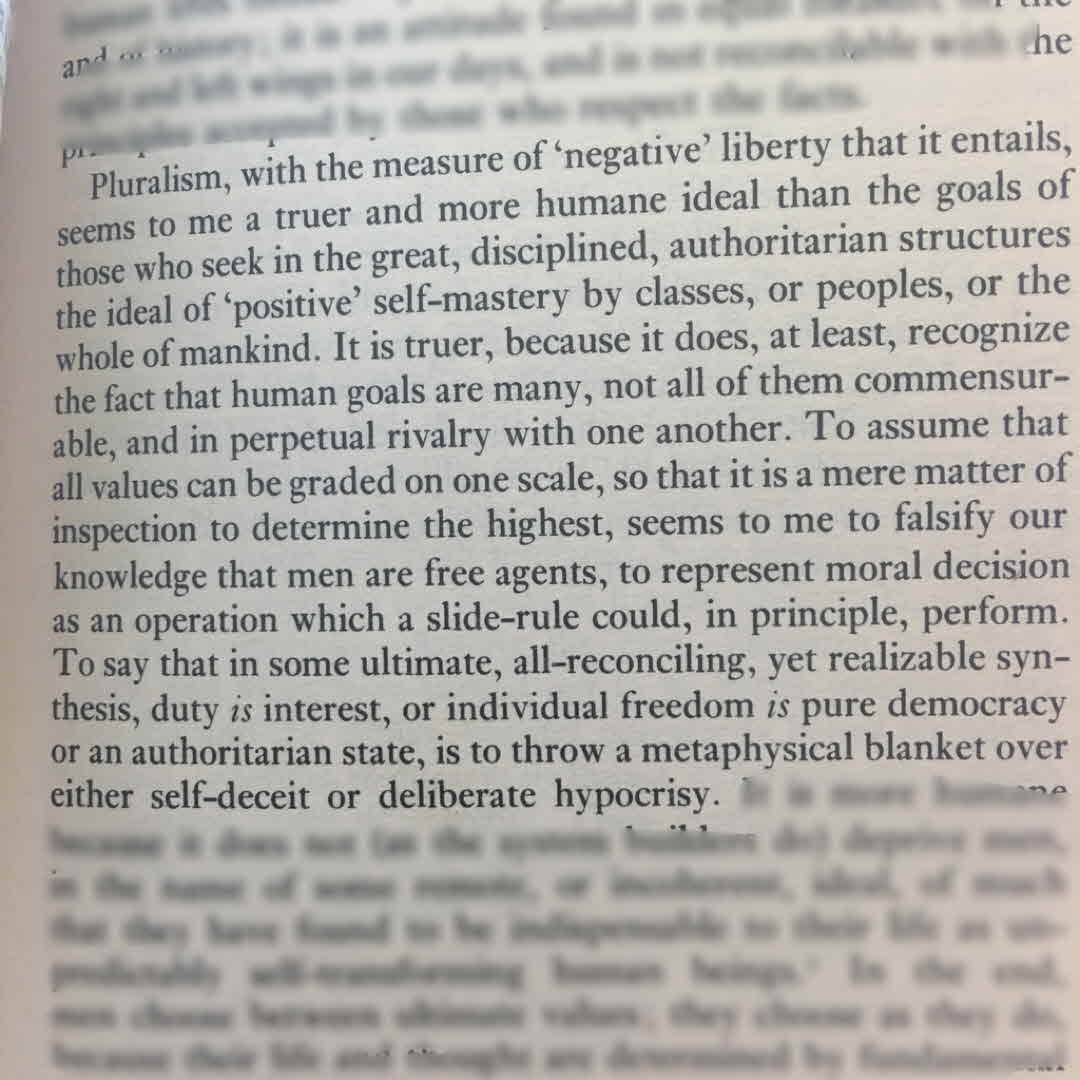
Pluralism, with the measure of 'negative' liberty that it entails, seems to me are truer and more humane ideal than the goals of those who seek in the great, disciplined, authoritarian structures the idea of 'positive' self-mastery by classes, or peoples, or the whole of mankind.
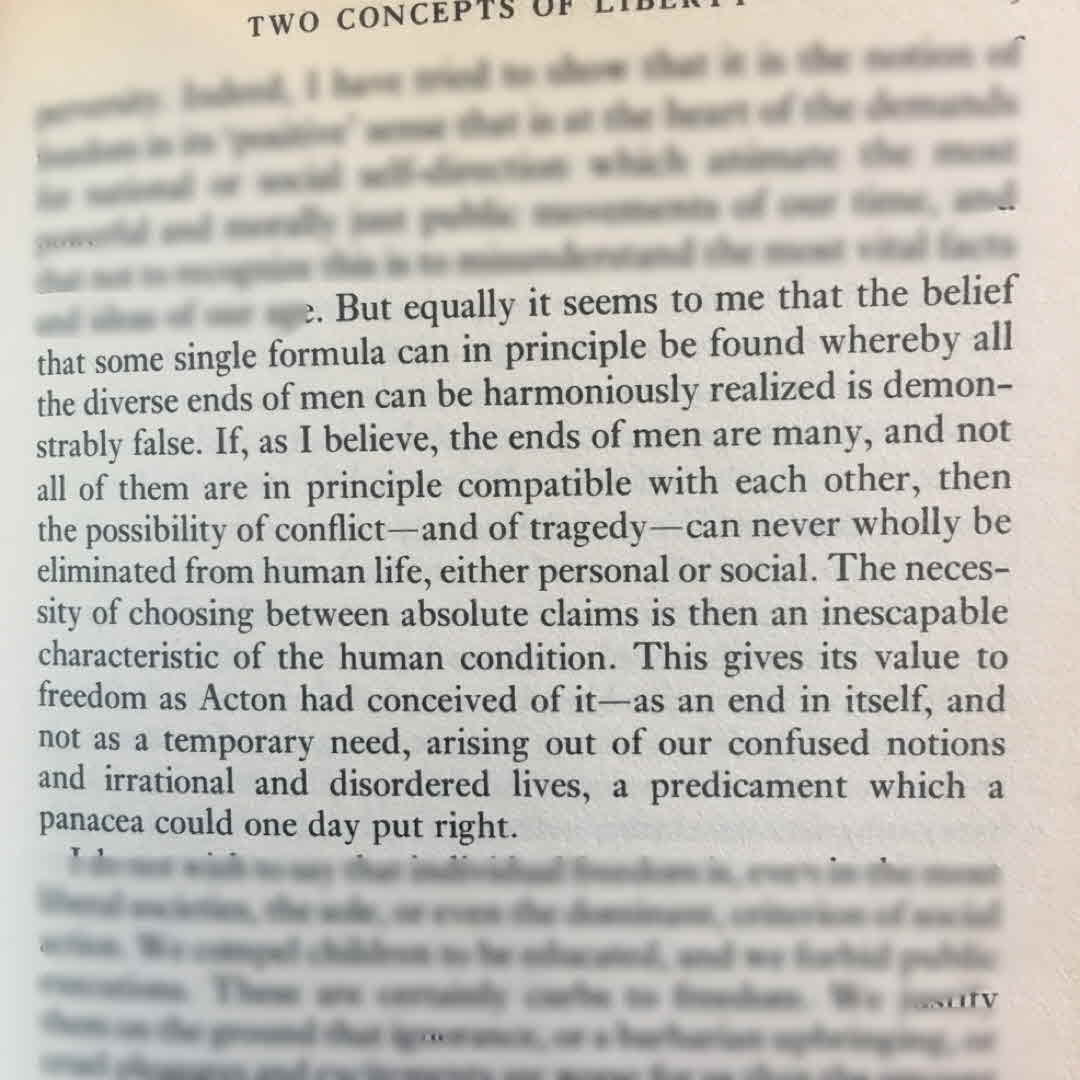
If, as I believe, the ends of men are many, and not all of them are in principle compatible with each other, then the possibility of conflict – and of tragedy – can never wholly be eliminated from human life, either personal or social.
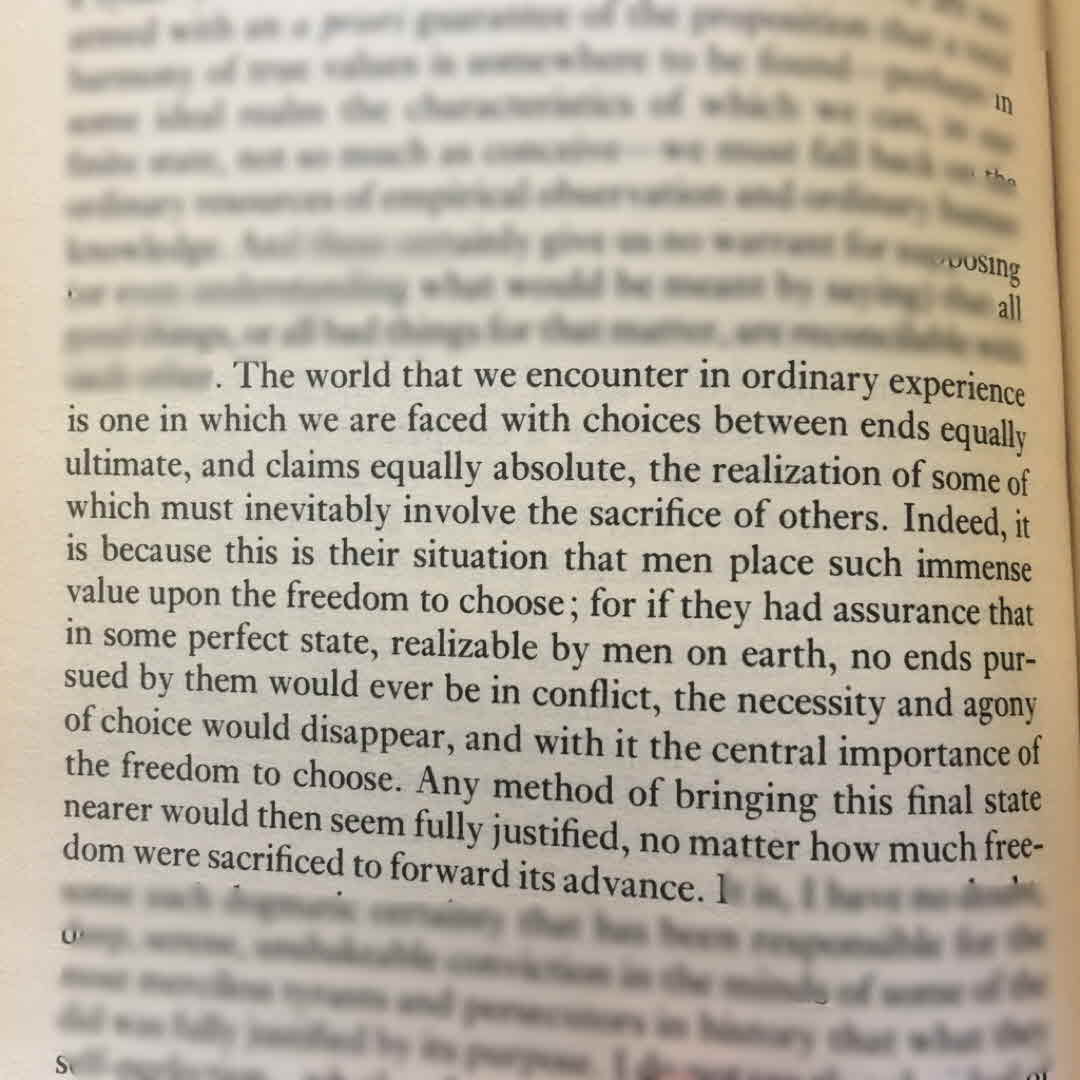
... for if they had assurance that in some perfect state, realisable by men on earth, no ends pursued by them would ever be in the conflict, the necessity and agony of choice would disappear, and with that the central importance of the freedom to choose.
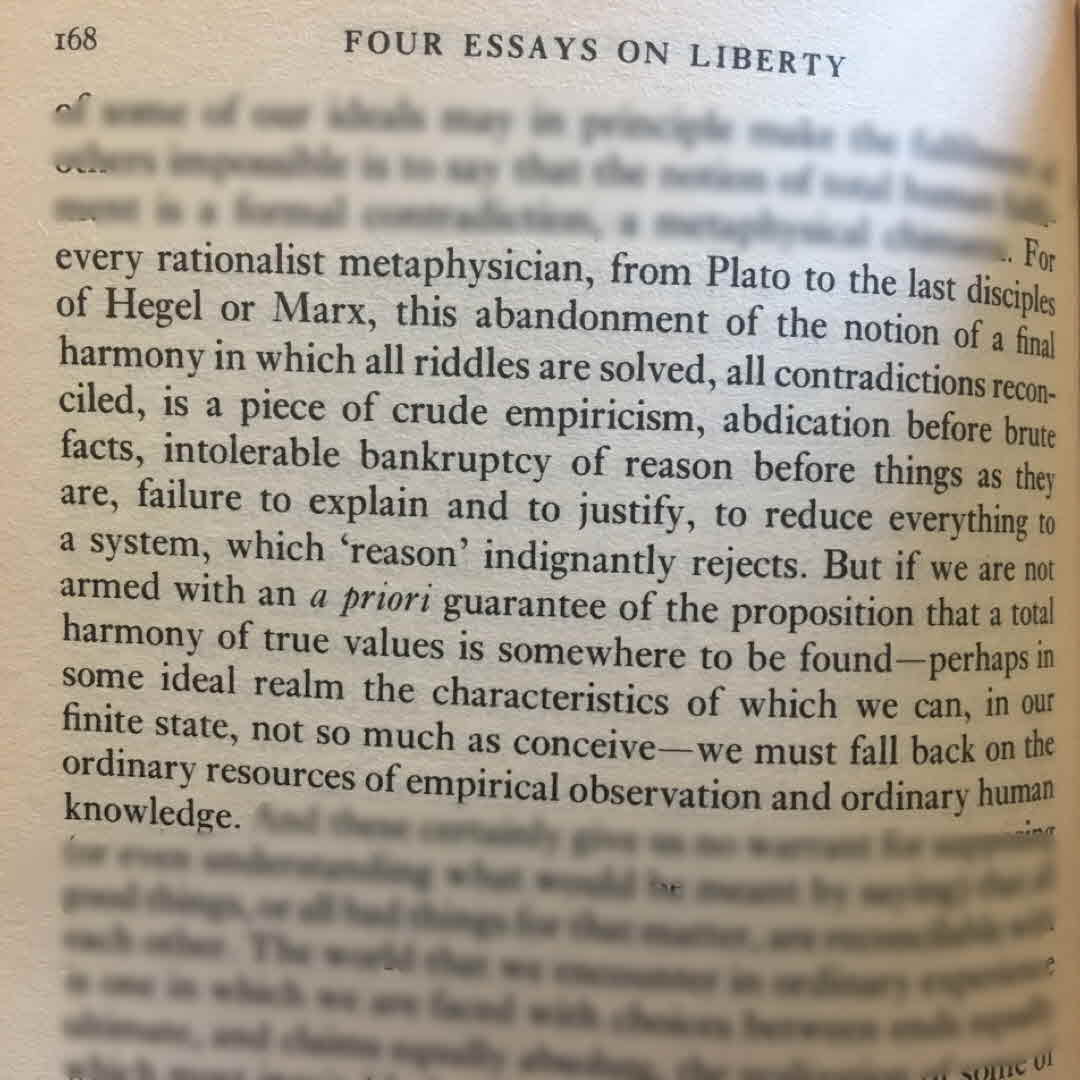
But if we are not armed with an a priori guarantee of the proposition that a total harmony of true values is somewhere to be found ... we must fall back on the ordinary resources of empirical observation and ordinary human knowledge.
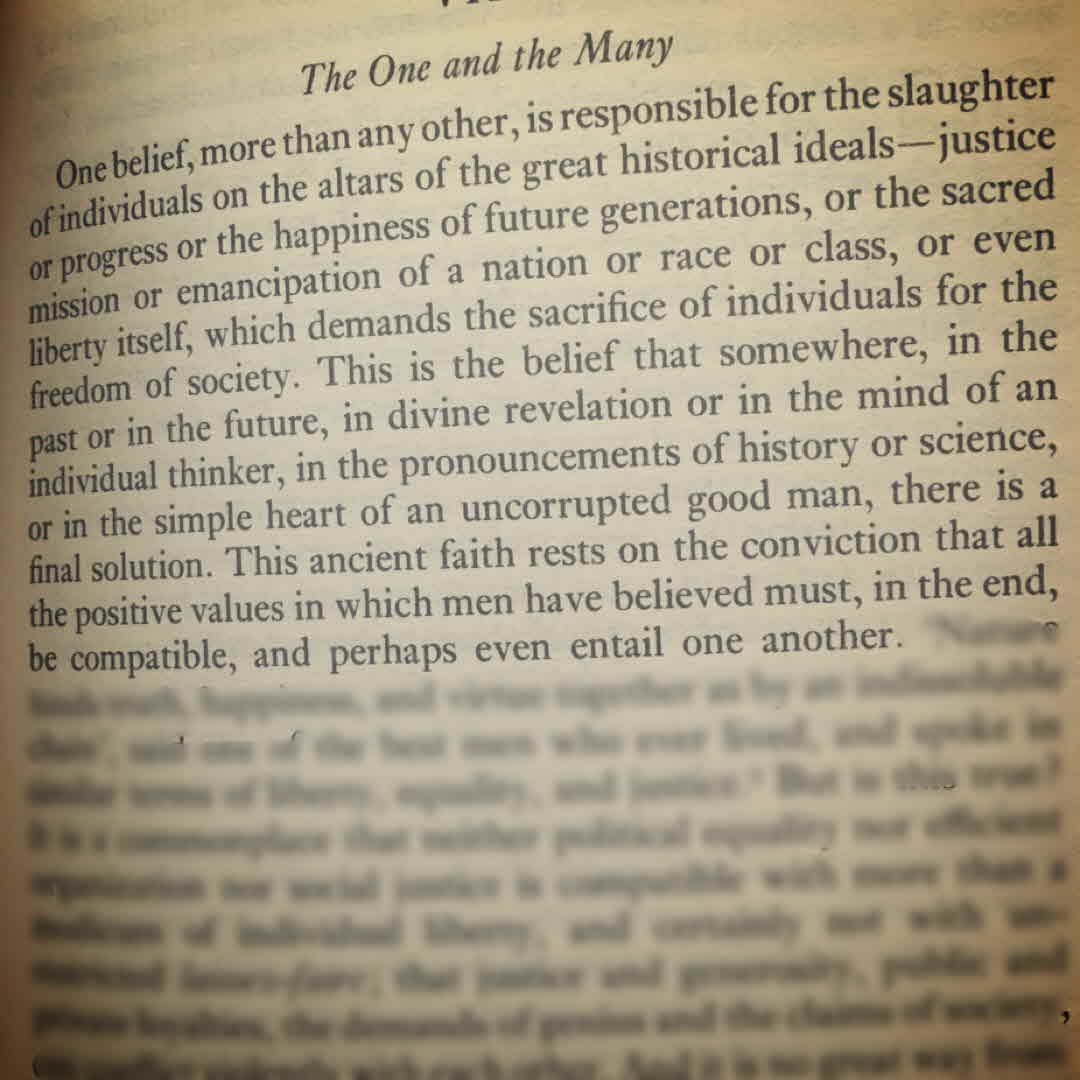
This is the belief that somewhere, in the past or in the future, in divine revelation or in the mind of an individual thinker, in the pronouncements of history or science, or in the simple heart of an uncorrupted good man, there is a final solution.
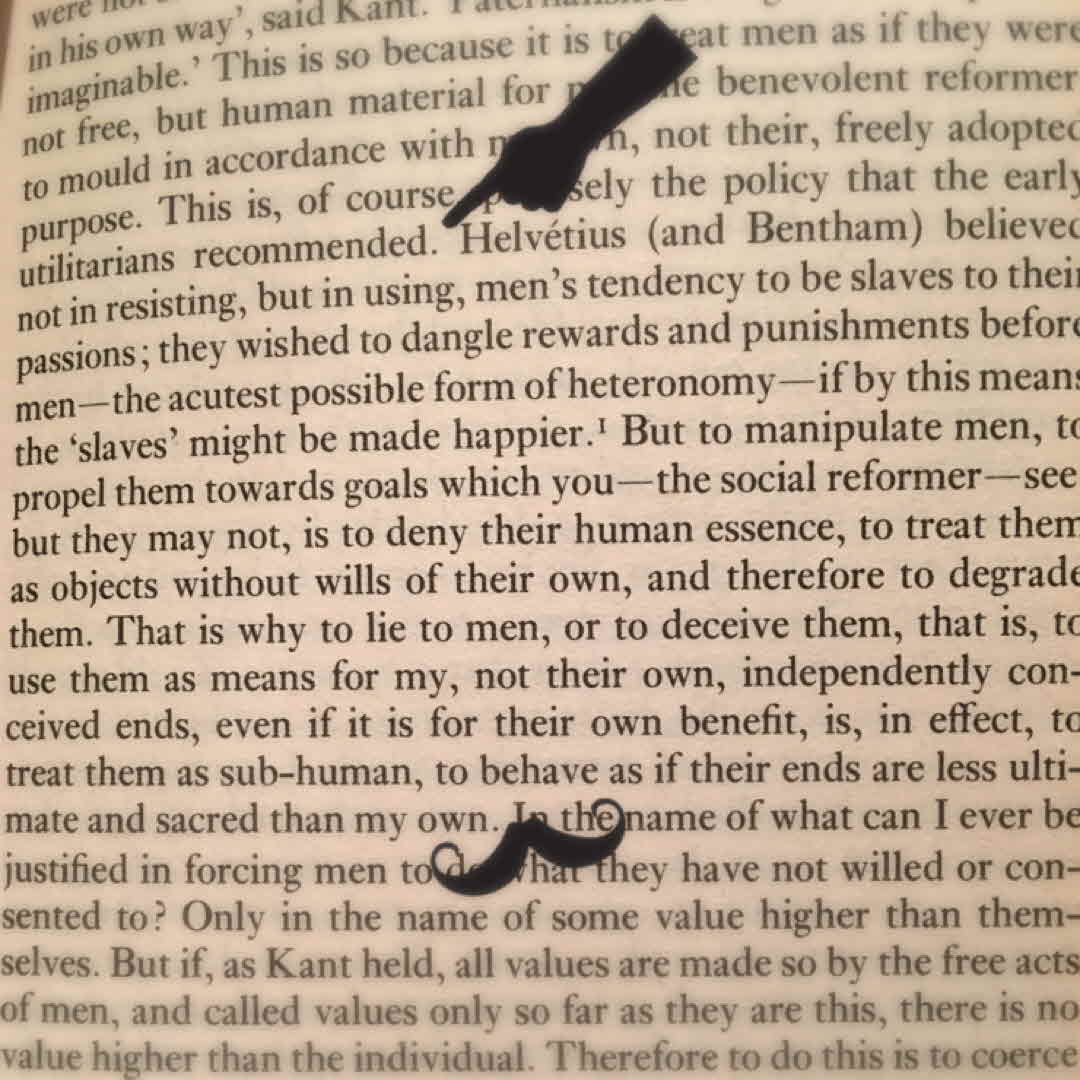
Helvétius (and Bentham) believed not in resisting, but in using, men's tendency to be slaves to their passions; they wished to dangle rewards and punishments before man – the acutest possible form of heteronomy – if by this means the 'slaves' might be made happier.
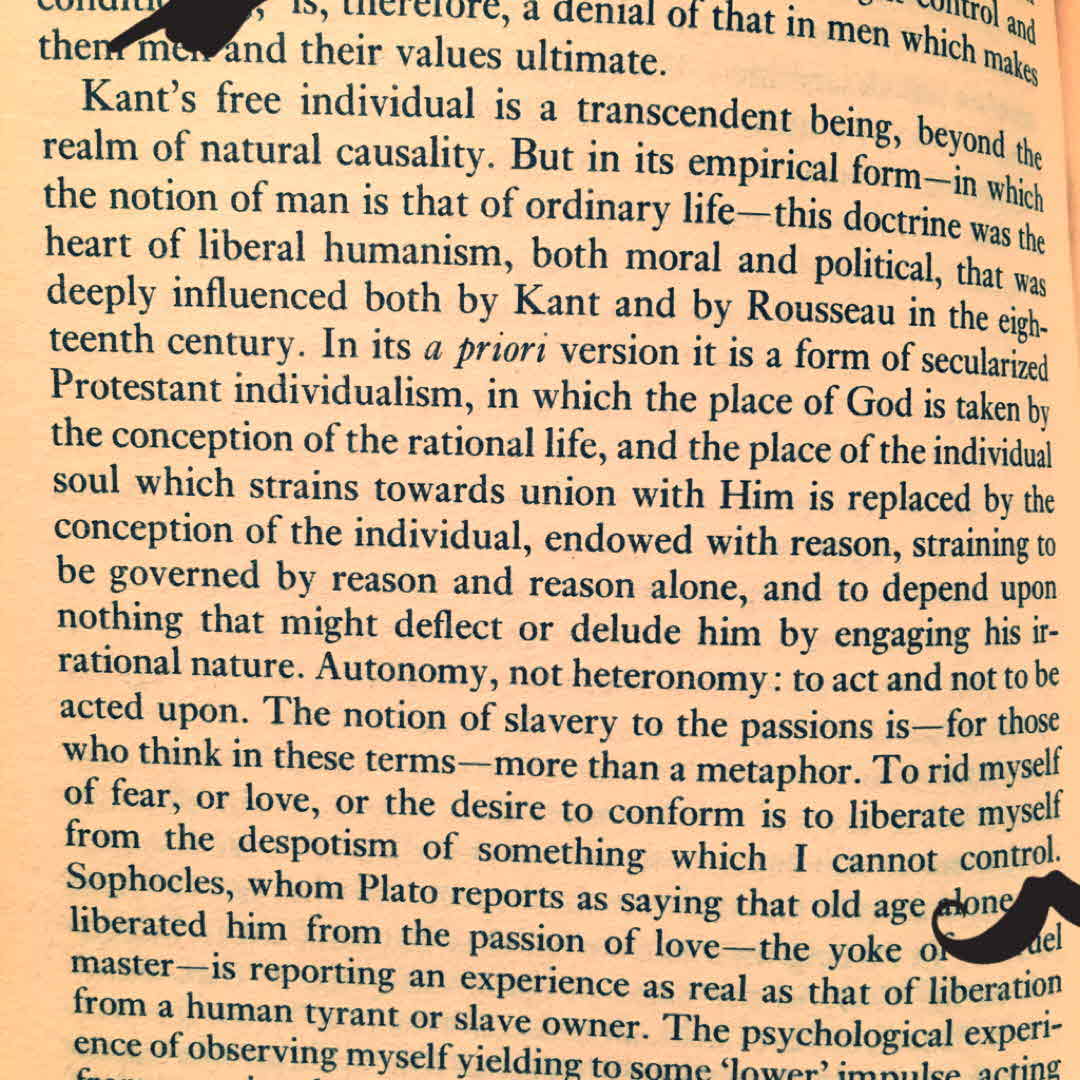
Autonomy, not heteronomy: to act and not to be acted upon. The notion of slavery to the passions is – for those who think in these terms – more than a metaphor. To rid myself of fear, or love, or the desire to conform is to liberate myself from the despotism of something which I cannot control.
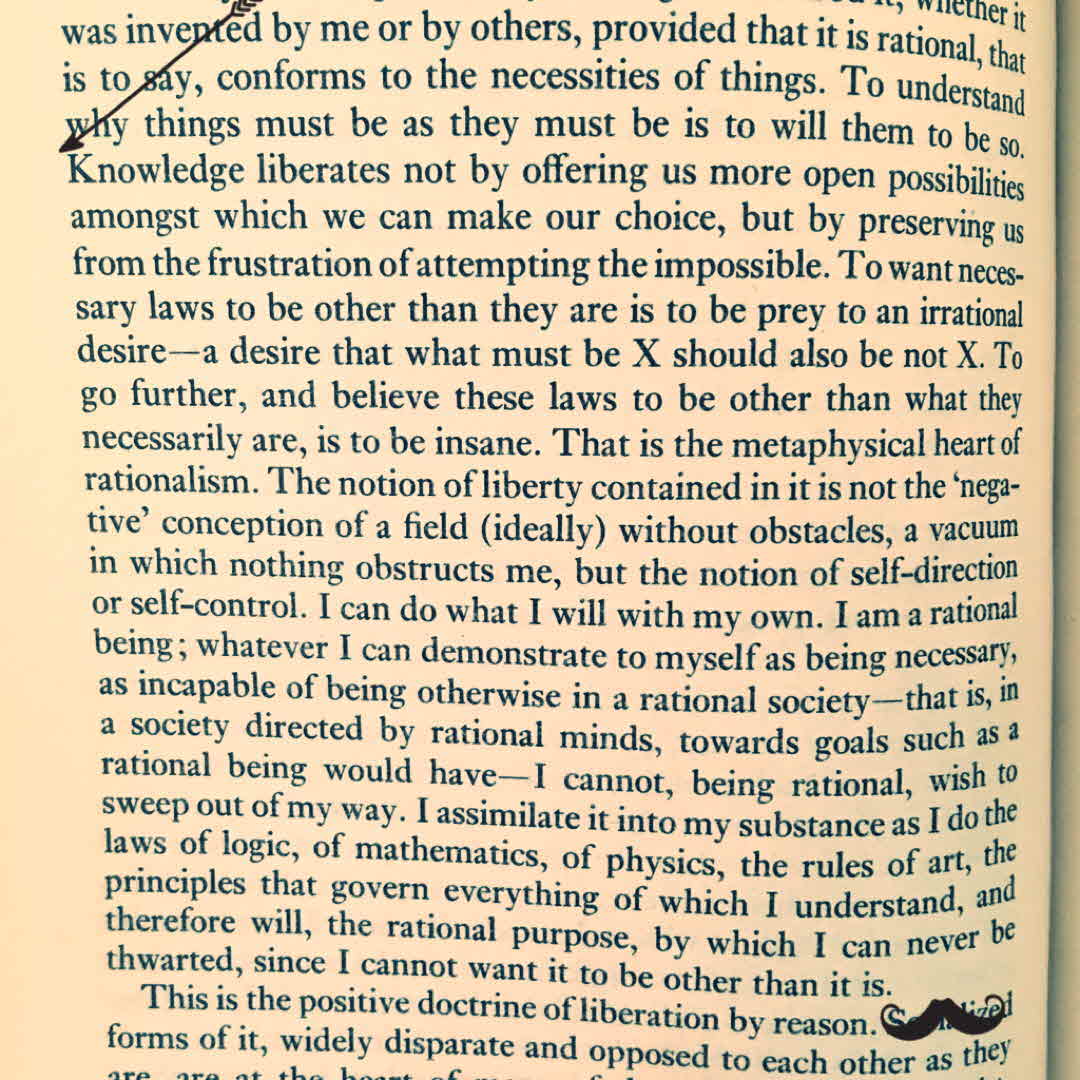
Knowledge liberates not by offering us more open possibilities amongst which we can make our choice, but by preserving us from the frustration of attempting the impossible. To want necessary laws to be other than they are is to be prey to an irrational desire...
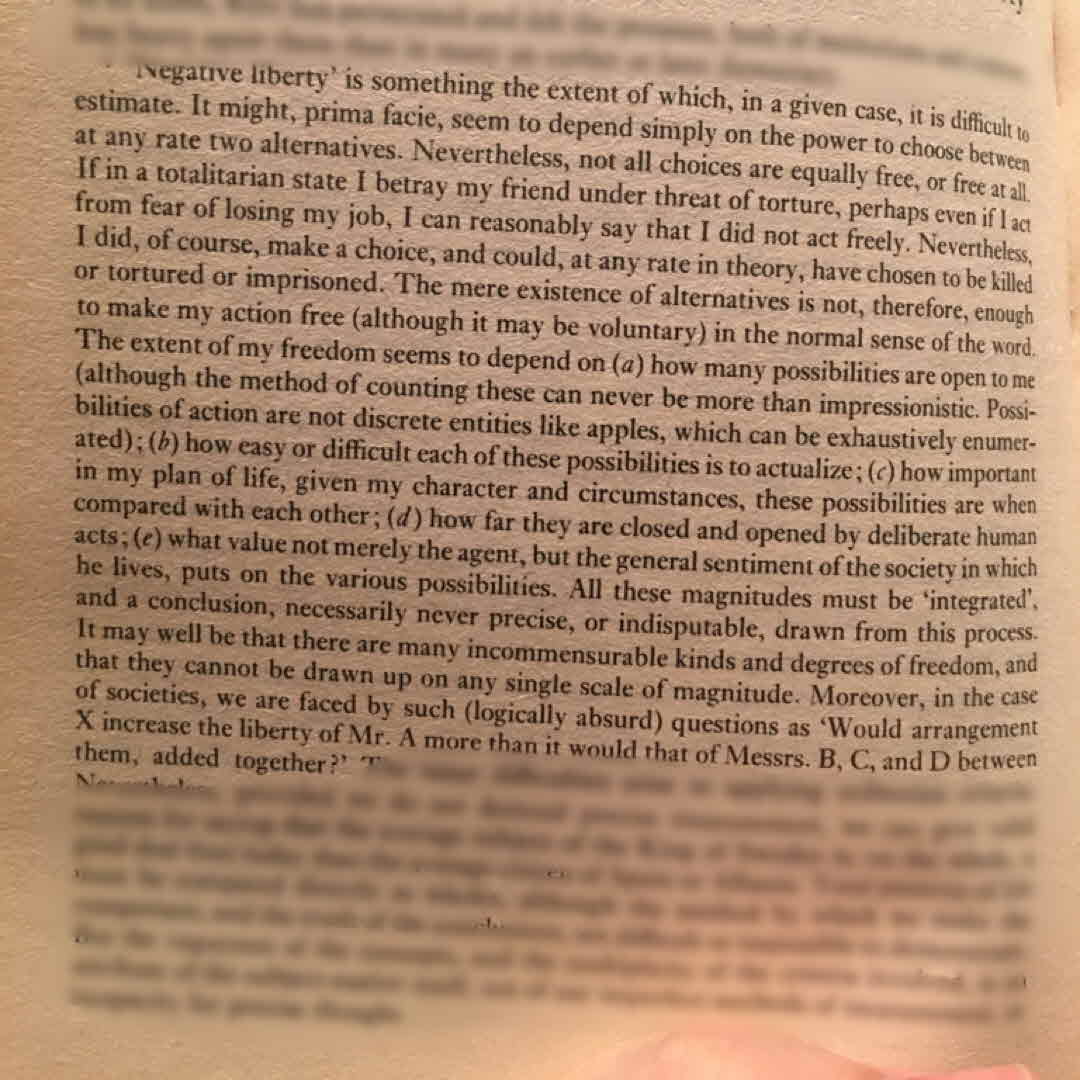
The extent of my freedom seems to depend on (a) how many possibilities are open to me…; (b) how easy or difficult each of these possibilities is it to actualise; (c) how important in my plan of life ...; (d) how far they are closed and open by deliberate human acts; (e) [value attributed to each]
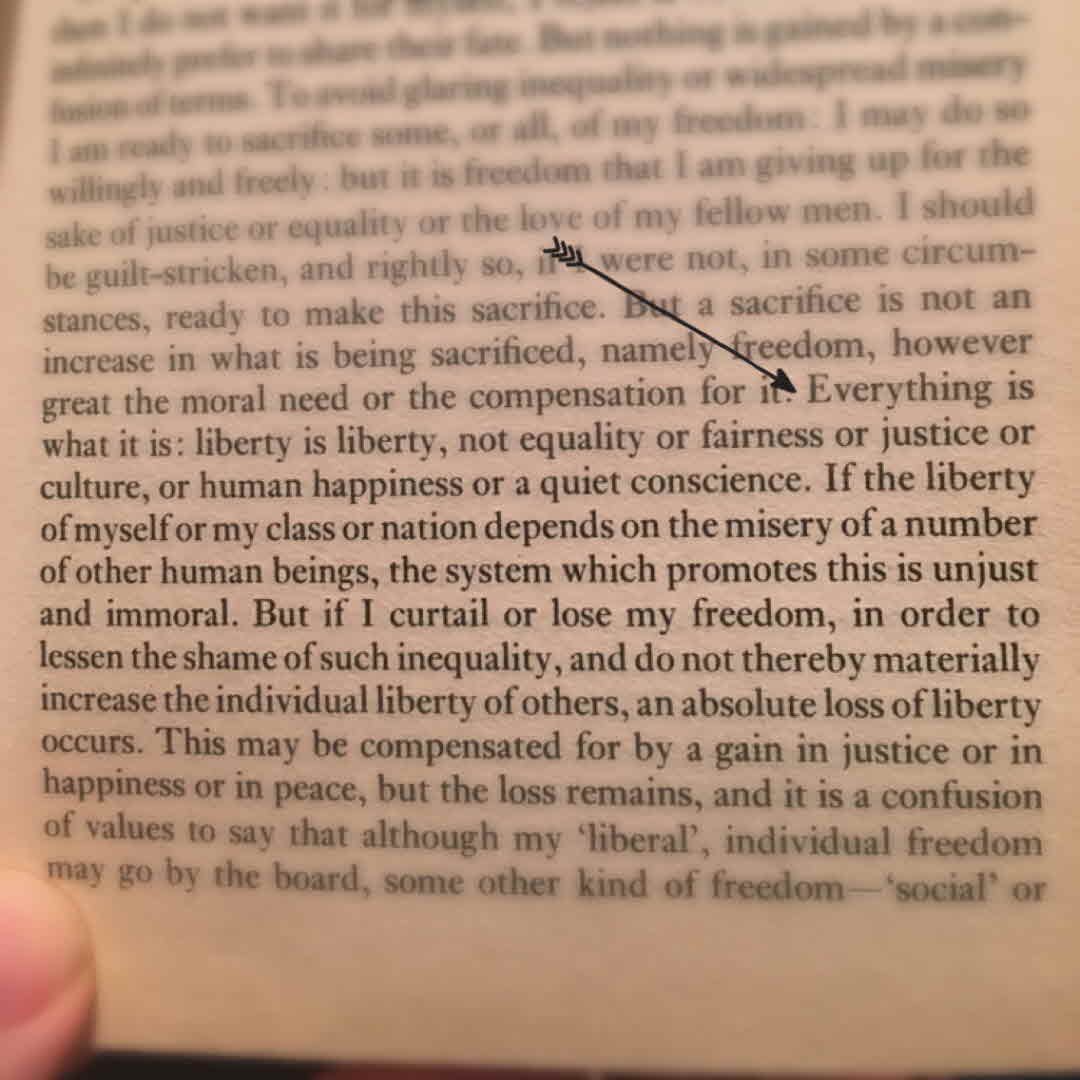
Everything is what it is: liberty is liberty, not equality or fairness or justice or culture, or human happiness or a quiet conscience. If the liberty of myself or in my class or nation depends on the misery of a number of other human beings, the system which promotes this is unjust and immoral.
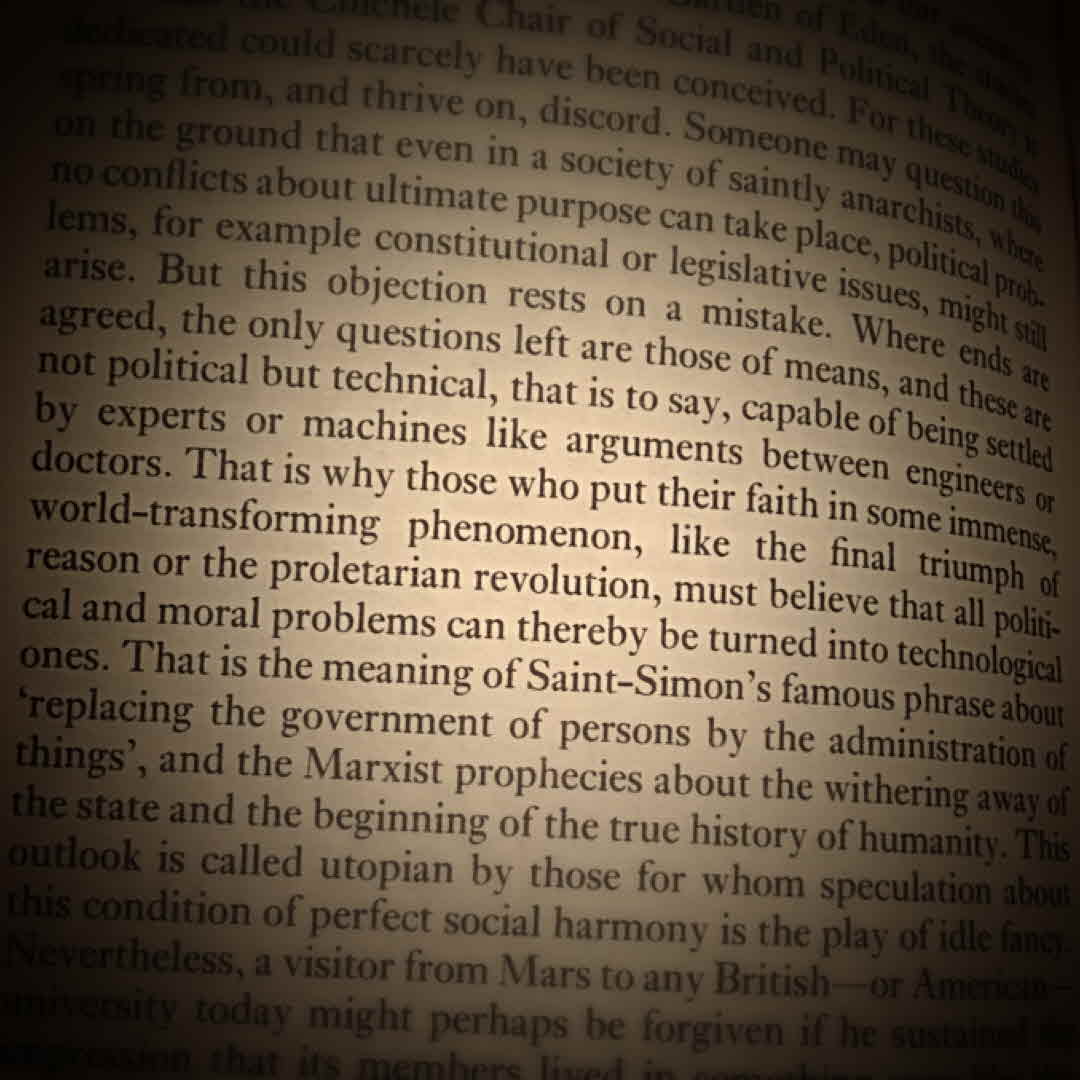
That is why those who put their faith in some immense, world-transforming phenomenon, like the final triumph of reason or the proletarian revolution, must believe that all political and moral problems can thereby be turned into technological ones.